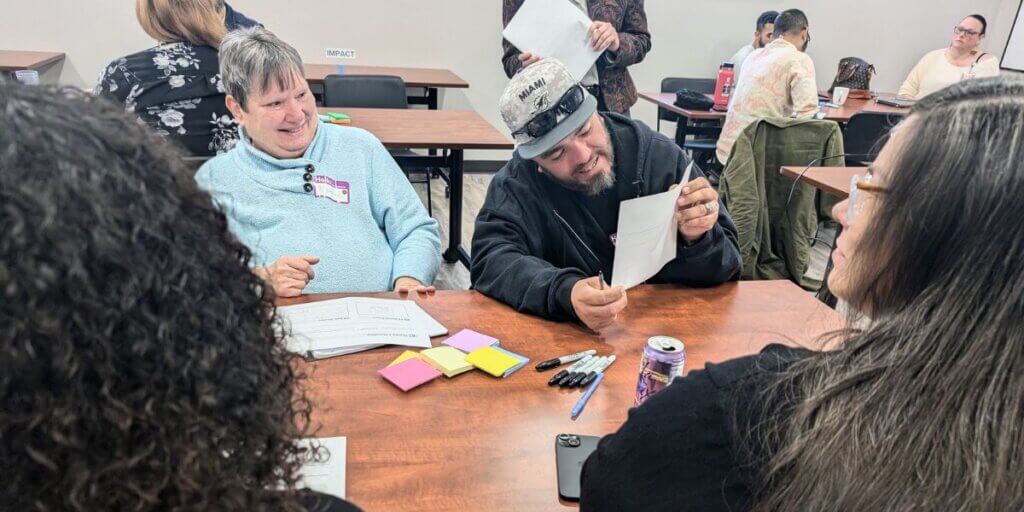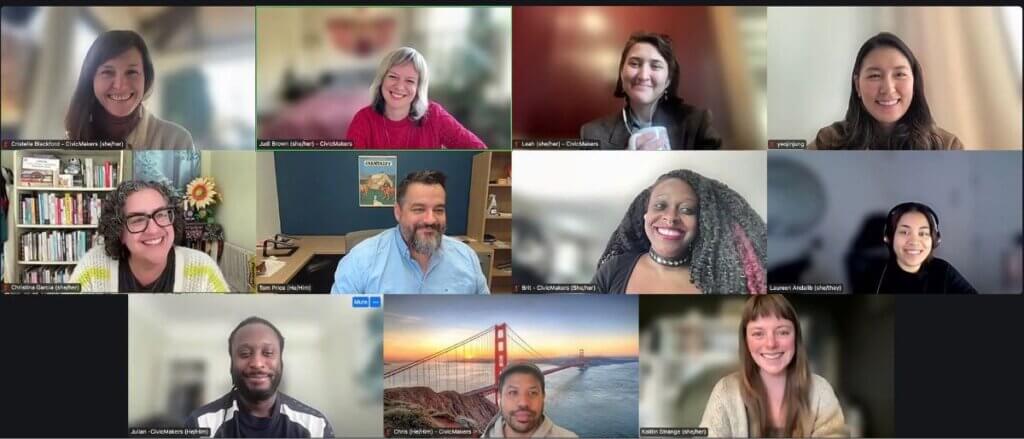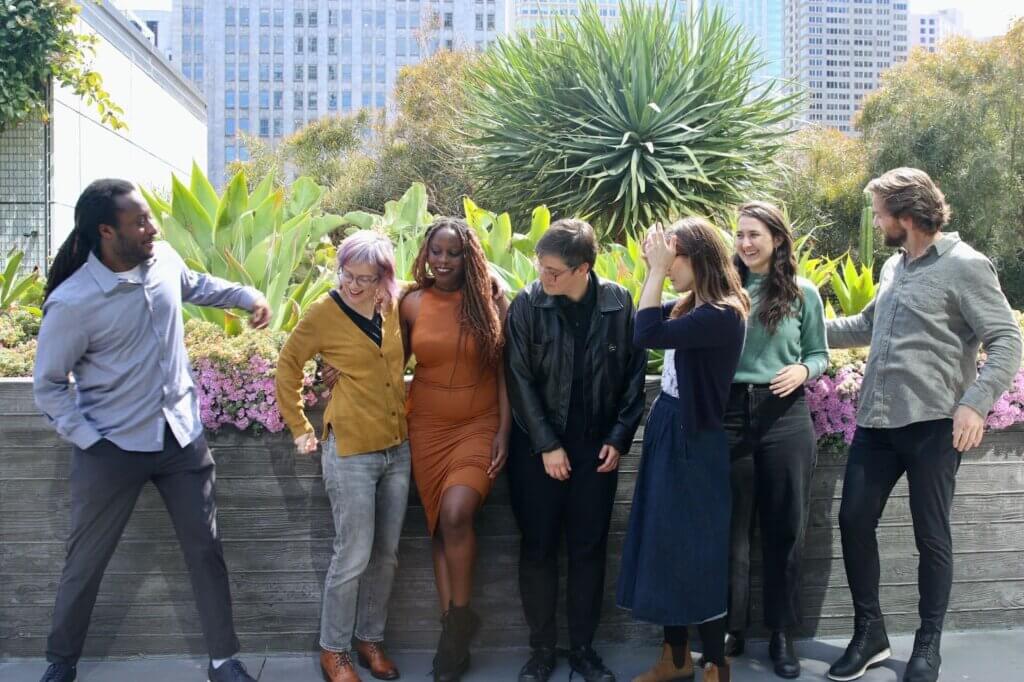Personal Democracy Forum 2016: Movements, Voices and Values

Last week I found myself back in New York City for another Personal Democracy Forum. This was my second in person, and my 4th or 5th as an avid follower. PDF16 did not disappoint. All told, this year’s gathering was a well-curated romp through the wilds of humanity fighting against a techno-fascist future. Here are a few thoughts about what I observed and how it made me feel.
Movements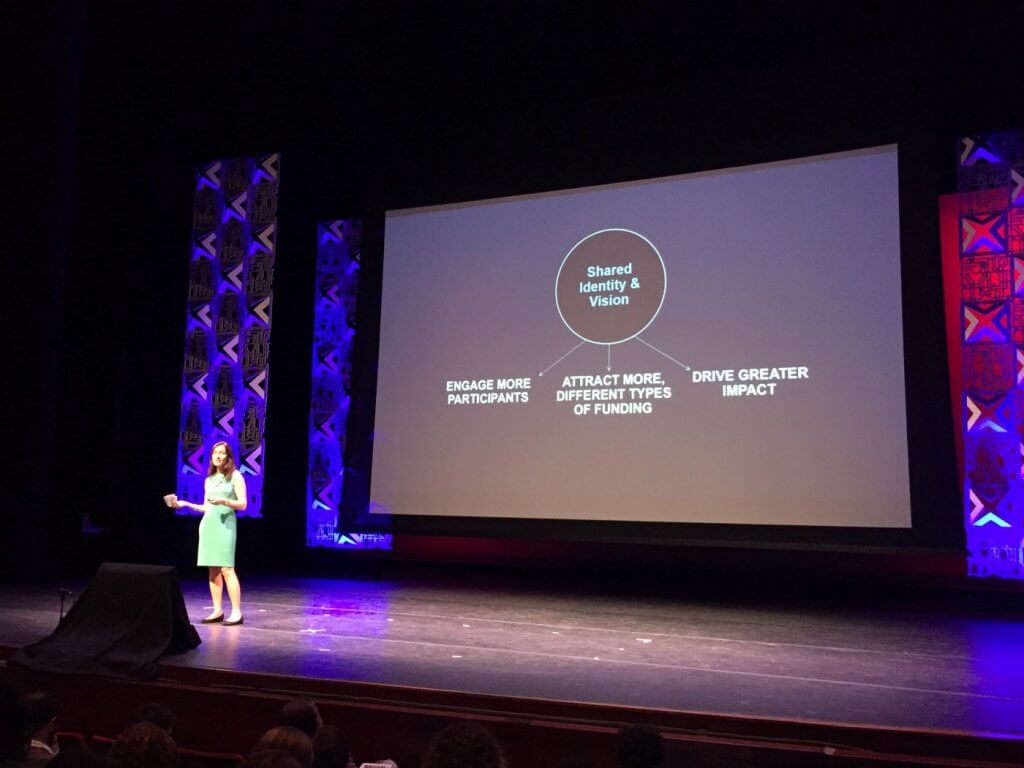
The tagline for this year’s PDF was “The Tech We Need,” but it could well have been “Where’s The Movement?” For a community that fashions itself small but mighty, there was much reflection about just how far civic tech has to go to reach mainstream status. At one point when polled, many in the audience considered themselves part of the environmental movement, but how many in the environmental movement would identify with the open internet movement? Precious few, I’d hazard a guess. While I heard much talk of an inflection point for civic tech, there was just as much bemoaning the lack of real impact.
Much of this discussion was fomented by Omidyar Network’s release of Engines of Change, the first major analysis of the civic tech sector since Knight Foundation’s 2013 “Trends in Civic Tech” report. While sharing the findings on the main stage, Stacy Donohue asked, after nearly $90 million in investments by Omidyar alone in 35 nonprofit and for-profit organizations around the world, where is the impact? Working with movement-building agency Purpose, Omidyar analyzed online signals to understand if civic tech could properly be called a movement. Do read the full report, but the main takeaways are:
- Grassroots activity is expanding across the US.
- Talk is turning to action.
- There is an engaged core, but it is very small in number.
- Civic tech is growing but still lacking scale.
- Common themes, but no shared vision or identity.
Evidence of maturation at PDF16 underscored this move to movement. The Civic Tech Field Guide being assembled by Erin Simpson and Micah Sifry of Civic Hall, along with Matt Stempeck of Microsoft, is a worthwhile endeavor that should help us better define, assess and coordinate civic tech efforts over time. The launch of Civic Hall Labs, alongside Civic Hall France and similar efforts like Superpublic in San Francisco are strong signals of a growing sector. And, at the risk of tooting my own horn, a much-needed conversation about building sales and business development capacity in civic startups was held at the “Bid With, Not For: Selling Civic Tech With Empathy” breakout panel.
Voices
Personal Democracy Forum is a special occasion for many reasons, not the least of which is a beautiful display of geographic, cultural, racial, gender and cognitive diversity. Case in point, 57% of speakers this year were female. Bravo! It is wonderful to see the proliferation of voices in civic tech, a movement which relies on bringing in as many voices as possible. Empathy comes to life and change becomes possible when the voices of others touch our hearts, particularly voices that are not often heard.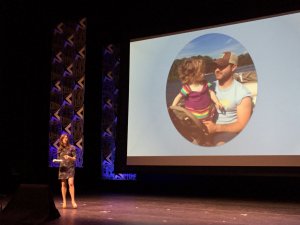
Sadly, some voices are never to be heard again, but will remain with us always. The conference began with with a stirring tribute to Jake Brewer, long time PDF’er and civic activist. It was a touching moment for me, since the last time I saw Jake was at PDF in 2015. Even more touching was a talk by Mary Katherine Ham, Jake’s widow, who shared a vulnerable, humorous look at grief, stewardship and the founding fathers.
I was also deeply moved by Alia McKee’s brave and personal take on cultivating compassion for others by starting with loving ourselves. Her powerful recounting of struggles to remove negative self-talk resonated with my own personal work over the past few years. I could not agree more with her encouragement to give ourselves the permission for self-care, be it exercise, meditation, creative expression, travel or otherwise.
Kristen Soltis Anderson spoke of Sim City 2000, along with the potential for conservatives to embrace civic tech on the grounds of efficient, accountable government. Erin Vilardi of VoteRunLead shared her awesome work bringing the perspective of more women into local offices of all kinds. And this is only a small sampling of the incredible voices that rang out the entire conference.
Values
If movements arise from strong communities, and communities coalesce around shared values, then what are the shared values of our movement? Given the conversation about a civic tech movement, I asked PDF this question via Twitter, and received a fair amount of engagement — 11 RTs! — but no responses.
Question for #PDF16 : What are the shared values of the burgeoning #civictech movement? #enginesofchange
— Lawrence Grodeska (@grodeska@mas.to) (@grodeska) June 9, 2016
Not one person shared a value. Why is that? Granted, I don’t expect much from Twitter, but I’m left wondering if there isn’t a deeper, existential question that looms over civic technology. Are we too busy to be concerned with something so abstract as identifying our values? Or are we afraid of what we might find if we really ask ourselves if shared values exist in civic tech?
I’ve thought a fair bit about this over the past few years, and here’s what I offer as a starting point:
- Inclusivity / equity—Essential if we hope to help 100% of humanity.
- Openness / transparency — Good governance is open and accountable for all to observe.
- Participation / collaboration — Direct involvement of many people and parties are required to solve today’s complex problems.
- Outcomes-focused — If we are not focused on outcomes, what are we doing?
This list is obviously incomplete, in large part because it does not include your feedback. And there may well be inherent contradictions. Can a VC-funded gov tech platform find shared values with #blacklivesmatter? Does inclusivity always jibe with action? Stepping back, what outcomes are we hoping to achieve? For that matter, what type of society are we working towards?
As Douglass Rushkoff chided in his closing keynote, we can’t build a truly equitable, participatory society on the backs of a corporate capitalist system. This is why it is imperative that we establish our civic platform — the political kind, not the tech kind — based on shared values to unite our disparate voices into a beautiful, boisterous movement with an undeniable north star that cannot be co-opted. I’d argue that these are the very values of democracy, and that it’s high time we starting comporting ourselves and our companies accordingly.
Where to, civic tech?
So, what’s next? This is a topic for a post all its own, but I have a few thoughts specific to Personal Democracy Forum.
During the opening day of PDF16, there was some Twitter chatter decrying the “big stage civic tech spectacle,” and calling for more critical self-reflection. As much as I value Personal Democracy Forum, I have to agree with some of the sentiment about this moment in civic tech. While defining our terms and understanding our movement are commendable, I do fear that some in civic tech are content with navel-gazing analysis and Kumbaya moments. Rather than another report defining civic tech, why are funders not opening up data on their investments so we can understand what has worked or not, and why? If we are really concerned about accelerating the impact of civic tech, where are the practical artifacts for entrepreneurs and organizations to employ? Where is the capacity building for existing efforts, or human-centered design training for government and nonprofit staff?
Yes, we do need to define and grow civic technology into a movement, but it needs to be in relationship to existing movements, in part because of the broad nature of “civics.” Mariana Ruiz Firmat spoke of intersectionality being at the heart of the Kairos Fellowship, and it might well be at the heart of civic tech. Since civics, by definition, cuts across so many issues, there is a tremendous opportunity for our community to draw and reinforce connections across disparate movements. Key to this, of course, will be values, potentially some of those I described above.
So how about this: let’s focus on removing obstacles to impact, and define ourselves not by how we talk about ourselves or what we build, but by how we support existing efforts and partners in our communities. This will mean the hard work of culture change and community-building instead of the sexy allure of another app or platform. But if that’s what it takes to make better civics, then count me in.
Civic bits:
- HXL standard — At PDF16, I learned of the Humanitarian Exchange Language for standardizing humanitarian data. Awesome!
Speaking of standards — Congratulations to Greg Bloom on his main stage talk about his work at Open Referral developing standards for social services data. This is civic tech. - Psychology and civics — I was delighted to hear two speakers on the main stage (Sherry Turkle, The Pretense of Empathic Machines; Tracy Dennis-Tiwary, Calming The Politics of Fear: Technology and the Anxious Brain) make important connections between the field of psychology and civics. I may have missed others.
- Feeling Presidential — Very excited to see the folks from Civic Nation & the Obama Foundation out mixing, mingling and learning about civic technology.
- The rise of service design — Maybe it’s selection bias, but I was hearing about service design left and right, from the NYC Mayor’s Office of Operations to the “Is the Civic Tech Story Broken?” panel to multiple attendees who self-identified with that field.
What did I miss? A lot, obviously, so help me fill in the gaps!
Thanks to judi lynn brown.
